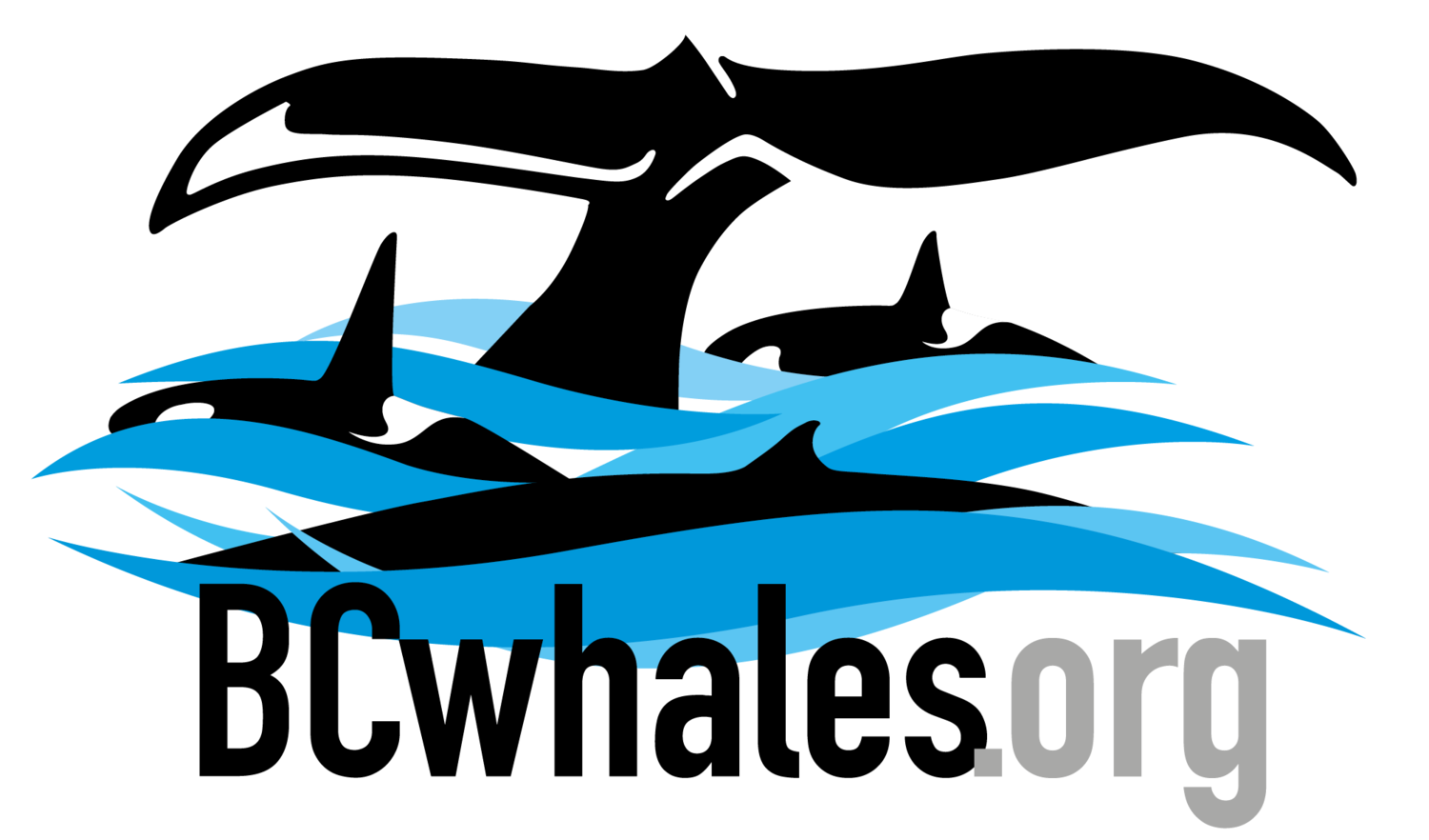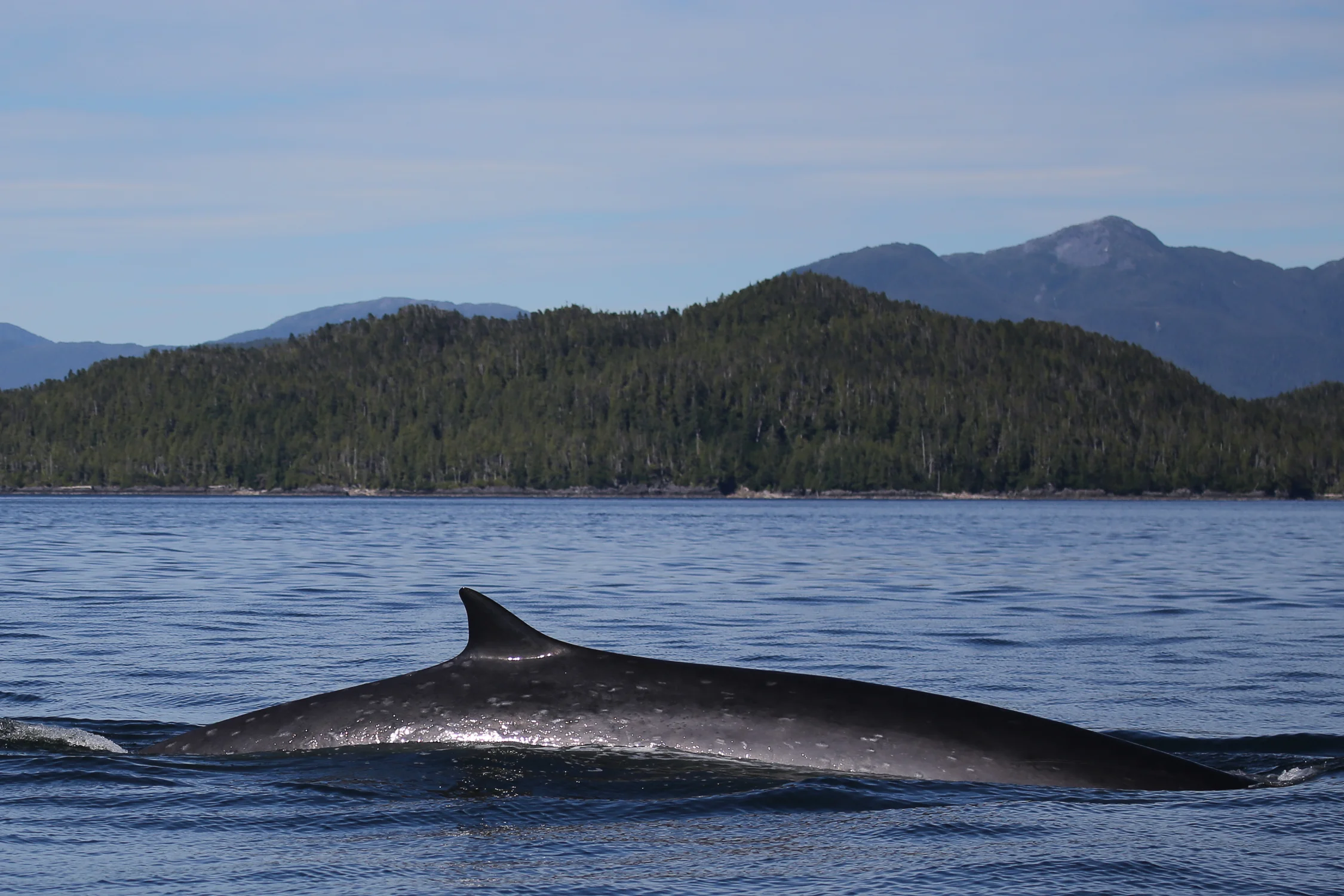Humpback Whales | Orca | Fin Whales | Whales & Sound | Identification of Whales
Fin Whales
Fin whales are the second largest mammal on the planet (only the blue whale is larger). They feed on euphausiids (a shrimp-like crustacean), herring, capelin, other shoaling fish, and squid! Like other baleen whales, the fin whale strains its food from the water through baleen plates.
Fin whales were heavily whaled in BC, with over 7600 taken by coastal whaling stations between 1905 and 1967, as well as thousands more taken by pelagic whalers through the 1970ʼs. In British Columbia, fin whales are typically found in exposed waters off western Vancouver Island, Queen Charlotte Sound, Hecate Strait, and Dixon Entrance. Sightings and acoustic detection allow researchers to estimate the fin whale population is currently 50% below numbers 60-90 years ago. The fin whale has been designated “Threatened” by both COSEWIC (2005) and the Species at Risk Act (SARA).
Fin whales were first documented by NCCS and the Gitga'at First Nation of Hartley Bay near the Kitimat Fjord System in 2006. Since that time, sightings have become increasingly frequent indicating that fin whales are beginning to re-occupy this area. By the end of 2015 the number of individual fin whales sighted had increased from 3 to 61, now in 2021 over 80! Individual fin whales can be identified from their unique dorsal fins, which has allowed researchers to compile a catalogue of individuals faithful to the Caamano sound and Squally channel areas.
The area has been highlighted as an important area for fin whales and likely represents unique nearshore fin whale habitat on the Pacific Coast of Canada. Their return raises questions about the current and past importance of such fjords to species that have typically been considered offshore. As their populations continue to recover, we will determine to what extent they may come to rely on this habitat and understand the potential importance of these whales to the ecological function of the north coast.


